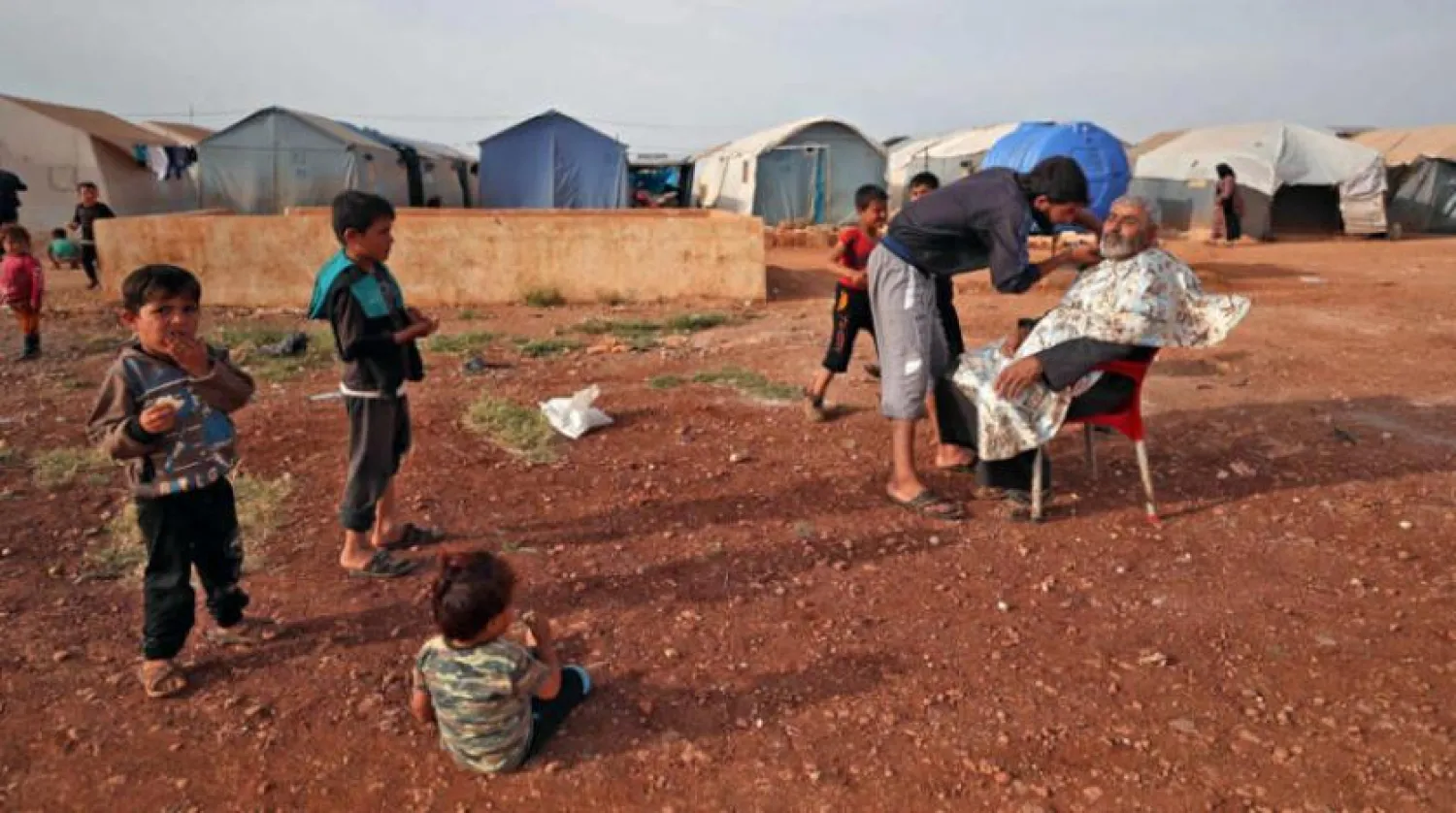The “borders” between the three spheres of influence in Syria are fixed, pending a mutual understanding between the United States and Russia. The deal would open the door to a comprehensive solution, but remains insufficient to impose and maintain the expected settlement as the Syrian conflict enters its eleventh year.
Two years ago, Damascus, Moscow, and Tehran were betting on a military operation to restore Idlib- or understandings and incursions to regain influence over east of the Euphrates, in addition to Arab and European political breakthroughs to ease Western sanctions on Damascus- and break its isolation.
But these hopes did not materialize. In March 2020, Moscow was surprised by the Turkish military presence in northwestern Syria and then concluded a long truce with Ankara. Joe Biden entered the White House this year, and the US military presence in northeastern Syria became open, no longer subject to the tweets and understandings of former President Donald Trump with his Turkish counterpart Recep Tayyip Erdogan. Moscow and Washington agreed on a truce as well. In addition, the previous US administration implemented the Caesar Act and coordinated with the European Union and Britain to impose sanctions on Damascus. This has set a legal and political ceiling that restrained the aspirations of those seeking political normalization and economic cooperation with the country.
For around a year and a half, no practical steps were achieved towards a political solution nor a breakthrough in the work of the Constitutional Committee, which Moscow put as an alternative to all the provisions of Resolution 2254. The lines of contact between the three regions have not changed. Each “region” follows its agenda.
In Damascus, parliamentary elections took place, and two weeks after, presidential elections will be held in government-controlled areas, as well as in some diplomatic missions abroad and Lebanon. This is accompanied by war under Russian cover against “ISIS” in the Badia and some assassinations and expansion operations in the countryside of Daraa and Sweida. The official political discourse emphasizes restoring control and sovereignty over all parts of the “Syrian state”, while promises of reforms are repeated in the “national agenda” that will follow the presidential elections. Damascus is benefiting from the presence of Russian and Iranian bases and forces.
The east of the Euphrates is witnessing the empowerment of the Autonomous Administration and the implementation of intra-Kurdish political agreements between its institutions and Syrian opposition parties. This is accompanied by a campaign launched in coordination with the US-led international coalition to pursue ISIS cells and solve the problem of the “mini-state” in al-Hol, a city that comprises thousands of ISIS Arabs, foreigners, and displaced people. This is supported by efforts to grab political recognition of this administration and the Kurdish forces inside it. The “administration” enjoys the presence of the US-led coalition forces and bases.
Something similar is going on in the northwest of the country. Hay’at Tahrir al-Sham, the successor of Al-Nusra Front, is seeking to have political recognition, and its leader, Abu Muhammad al-Julani, changed his rhetoric in an attempt to receive the consent of America and the West. The movement also seeks to empower its “rescue” government and institutions, in competition with the “interim government” that extends its control with other factions over the north of the country. Moreover, the group has opened a department for compulsory recruitment and continues to chase ISIS militants and extremists. It also benefits from the presence of Turkish forces and military bases.
The foreign military presence is not the only common factor between the three regions, which are also facing a severe economic crisis and the spread of the coronavirus. Each region is looking for exits through agreements and bargains, by opening “crossings through the lines of contact” for the passage of goods and aid. The US promised to release frozen funds to support stability and to give humanitarian and structural exemptions from sanctions for the eastern Euphrates.
It also promised to extend the decision on “cross-border” humanitarian aid and increase the crossings to three to include Turkey - northern Syria and Iraq - eastern Syria.
As for Russia, in view of the “borders” set by the sanctions and Western isolation, it is betting on Arab breakthroughs and Damascus’ return to the “Arab fold”, in addition to providing some funds and humanitarian aid to the Syrian government under the slogan of fighting the coronavirus.
Since the arrival of Biden’s administration, Washington has not imposed sanctions under the Caesar Act. It is monitoring Arab steps towards Damascus. It also allowed medical, humanitarian, and nutritional exceptions. The US capital is in fact betting that its leniency will encourage the Russian side to extend the international resolution to provide aid “across borders.”
Despite the decline in US-Russian bilateral relations, the abovementioned steps are seen as a tentative preparation for an arrangement of mutual interests between Washington and Moscow in Syria.
“This is the only path for the start of a comprehensive settlement, not its conclusion,” said a western diplomat.












